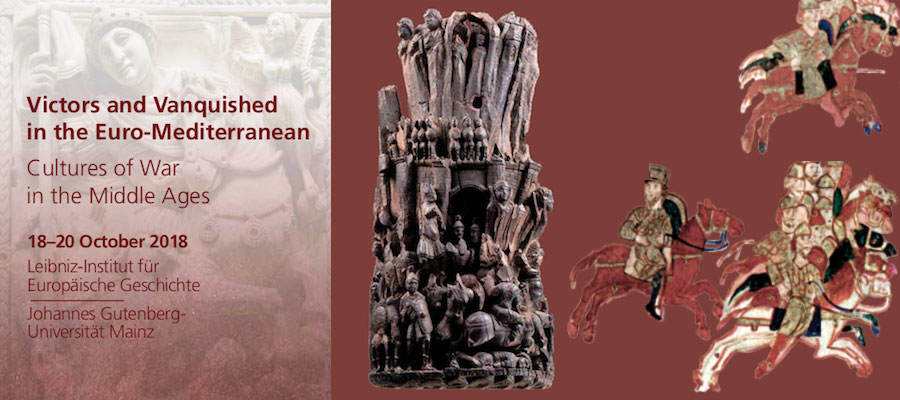Victors and Vanquished in the Euro-Mediterranean Cultures of War in the Middle Ages, Johannes Gutenberg-Universität Mainz, October 18–20, 2018
Conflicts significantly influenced medieval societies. The martial cultures which arose as a result developed not only in opposition to, but also under the influence of other cultures. Cultures of war are here understood as the norms, interpretations, attributions of meaning and reflections on war, as well as the forms and practices of war itself. The goal of this workshop is to analyze Euro-Mediterranean cultures of war and the importance of Byzantium for them in a comparative perspective on the basis of three concrete sets of topics:
- Remembering Victory and Defeat
- Practices of Celebrating Victory and Triumphs
- The Culture of Dealing with the Vanquished
Coping with victory and defeat in war touches upon questions of the legitimation of authority, for instance in historiography, panegyric, pictorial representations and architecture. The celebration of a triumph, by contrast, represents a means of direct communication between rulers, the army and the populace. In this context thanks is expressed to the army, generals, the ruler or another higher authority, and it is here that the embedding of the martial in each individual culture is expressed. The treatment of prisoners of war and the enemy dead likewise belongs to the frame of inquiry, yet is of greater importance for its praxis, as a similar treatment of one's own captives and possibly exchanges of prisoners would have been expected.
In order to facilitate a fruitful discussion and start a concise transcultural comparison, on the one hand, various regions are to be included, Latin Europe as well as the Slavic world, Byzantium or the Islamic-ruled Middle East. On the other hand, disciplines that principally work with texts as well as those that analyze material culture are to be called upon to produce a scholarly contribution.
